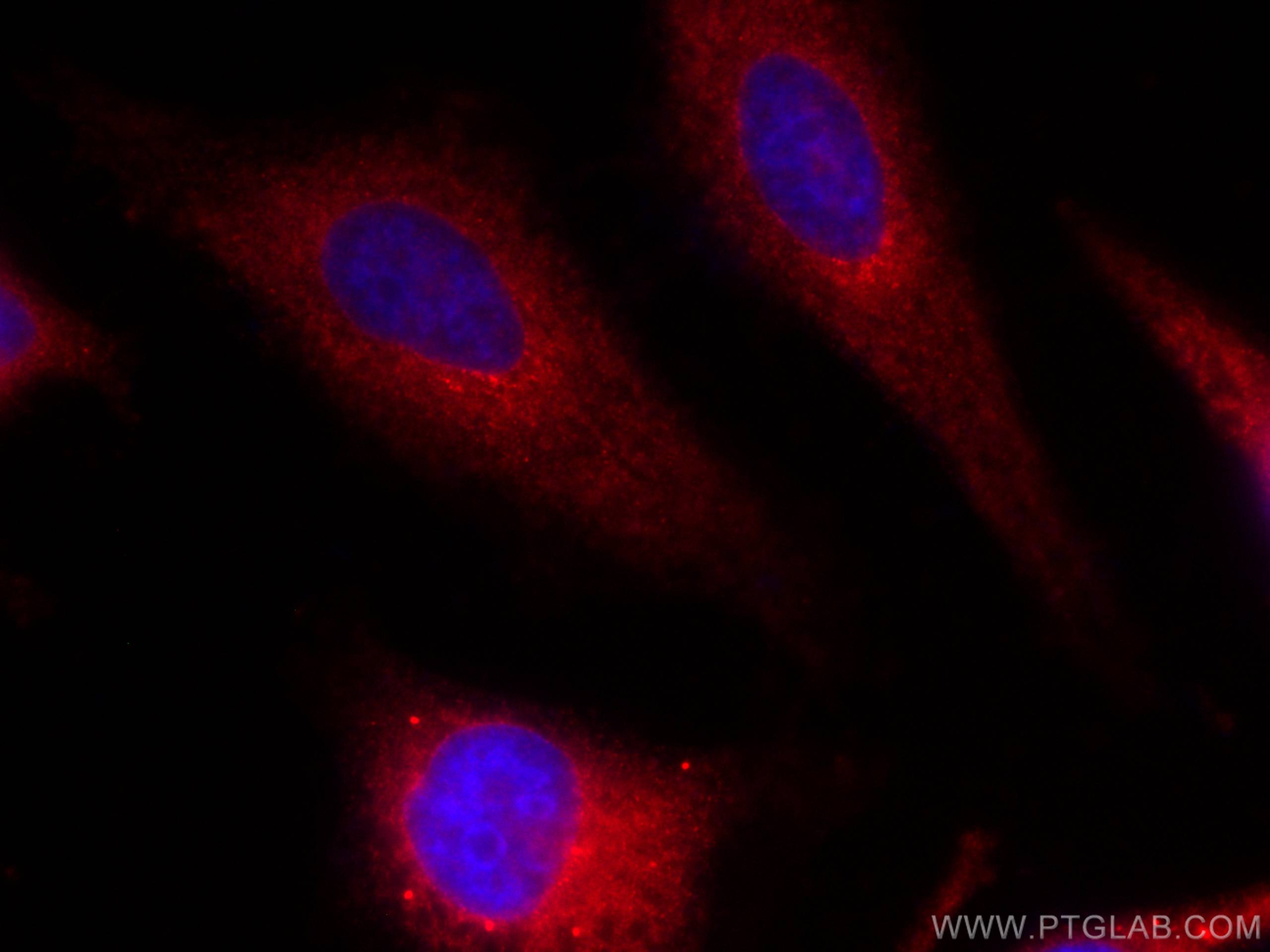Anticorps Monoclonal anti-URG4
URG4 Monoclonal Antibody for IF
Hôte / Isotype
Mouse / IgG2a
Réactivité testée
Humain, rat, souris
Applications
IF
Conjugaison
CoraLite®594 Fluorescent Dye
CloneNo.
2D5F12
N° de cat : CL594-67144
Synonymes
Galerie de données de validation
Applications testées
| Résultats positifs en IF | cellules HeLa, |
Dilution recommandée
| Application | Dilution |
|---|---|
| Immunofluorescence (IF) | IF : 1:50-1:500 |
| It is recommended that this reagent should be titrated in each testing system to obtain optimal results. | |
| Sample-dependent, check data in validation data gallery | |
Informations sur le produit
CL594-67144 cible URG4 dans les applications de IF et montre une réactivité avec des échantillons Humain, rat, souris
| Réactivité | Humain, rat, souris |
| Hôte / Isotype | Mouse / IgG2a |
| Clonalité | Monoclonal |
| Type | Anticorps |
| Immunogène | URG4 Protéine recombinante Ag28635 |
| Nom complet | up-regulated gene 4 |
| Masse moléculaire calculée | 922 aa, 104 kDa |
| Poids moléculaire observé | 104 kDa |
| Numéro d’acquisition GenBank | BC018426 |
| Symbole du gène | URG4 |
| Identification du gène (NCBI) | 55665 |
| Conjugaison | CoraLite®594 Fluorescent Dye |
| Excitation/Emission maxima wavelengths | 588 nm / 604 nm |
| Forme | Liquide |
| Méthode de purification | Purification par protéine A |
| Tampon de stockage | PBS avec glycérol à 50 %, Proclin300 à 0,05 % et BSA à 0,5 %, pH 7,3. |
| Conditions de stockage | Stocker à -20 °C. Éviter toute exposition à la lumière. L'aliquotage n'est pas nécessaire pour le stockage à -20oC Les 20ul contiennent 0,1% de BSA. |
Informations générales
URG4 (upregulated gene 4), also known as upregulator of cell proliferation (URGCP), is an oncogene which is involved in the development and progression of various tumors. URG4 is upregulated in hepatocellular carcinoma (HCC), ovarian cancer, and other types of cancer. Overexpression of URG4 not only results in tumour progression but also in metastasis and recurrence.
Protocole
| Product Specific Protocols | |
|---|---|
| IF protocol for CL594 URG4 antibody CL594-67144 | Download protocol |
| Standard Protocols | |
|---|---|
| Click here to view our Standard Protocols |


